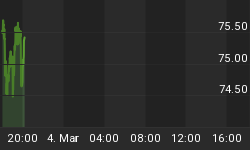Gold Unmoved by IMF Gold Sales Approval; Obama's Chief Advisor Calls for "Sustained" Stimulus
THE PRICE OF GOLD held in a tight range Friday morning in London, little changed from last week's close as government bonds ticked higher and world stock markets rose.
Recording an AM Gold Fix at $933.75 an ounce, the Gold Price slipped for non-US investors as the Dollar lost ground to the Euro and Sterling.
Bullion-bank analysts today cited the "long-term trend line that the whole market is looking at," pointing to $930 after the Dollar price bounced higher from $927 three times this week.
Crude oil ticked higher on Friday, but base metals held flat in London dealing.
"Fundamentally, inflation expectations are not there just yet and the precious metal could see even more losses if equities bounce back up," reckons Andrey Kryuchenkov at VTB Capital in London, quoted by Reuters.
"Gold's attractiveness as a safe haven asset is virtually zero at the moment."
But for the broader public, "People are worried about global financial institutions and what governments are doing with the printing of money to finance deficits," said Richard Maskobi of ScotiaMocatta to the Toronto Globe & Mail earlier this week.
"So the general population is looking at gold as another store of value."
Yesterday the Obama administration in Washington successfully tagged IMF Gold Sales of 403 tonnes to a new war and anti-drug financing bill, with the US Senate - which holds the casting vote for International Monetary Fund decisions - voting 91 to 5 in favor.
"Despite this there was virtually little or no impact on the gold market," notes Lawrence Williams at MineWeb. "This may be because of scant publicity being given to this part of the funding approval, but also the gold market has largely discounted the IMF gold sale anyway.
"Secondly, the IMF has said it will dispose of its gold in an orderly manner through a system such as the Central Bank Gold Agreement which limits sales volumes in a given year."
Economic news was light on Friday, with Germany's inflation data meeting analysts forecasts for a 3.6% drop in consumer prices in the year-to-June.
In Canada, retail sales for April were reported 0.8% lower in April from March.
"The recovery from the Depression is often described as slow," writes Christina Romer - chairwoman of Barack Obama's Council of Economic Advisers - in today's Economist magazine.
"But the truth is the recovery in the four years after Franklin Roosevelt took office in 1933 was incredibly rapid. That growth was halted by a second severe downturn in 1937-38...[and] the fundamental cause of this second recession was an unfortunate, and largely inadvertent, switch to contractionary fiscal and monetary policy."
A scholar of the Great Depression like Fed chairman Ben Bernanke, "Broad policy support may [today] need to be sustained somewhat longer," she concludes. "A more fundamental lesson is that policymakers should find constructive ways to respond to the natural pressure to cut back on stimulus."
Over in the Gold Mining sector, meantime, world No.4 producer Gold Fields confirmed 2009 forecasts for output from its new Cerro Coronoa mine in Peru, while Canada's IAMGold raised its total 2009 forecast by 4.5%.
Russian million-ounce miner Peter Hambro - which last year stepped back from a full listing on the London Stock Exchange in favor of remaining on AIM - vowed to reinstate its dividend "as soon as we possibly can."
"Despite the global economic crisis, the gold sector is still making money - look at the price of gold," said Senzeni Zokwana, president of South Africa's National Union of Mineworkers (NUM) to Reuters today.
Threatening a Gold Mining strike in what was formerly the world's No.1 producing nation, Zokwana is demanding a 15% pay settlement for NUM members, but mine bosses have so far offered just 7%.
Inflation was last pegged at 8.4%. South African gold output has more than halved in the last decade.















